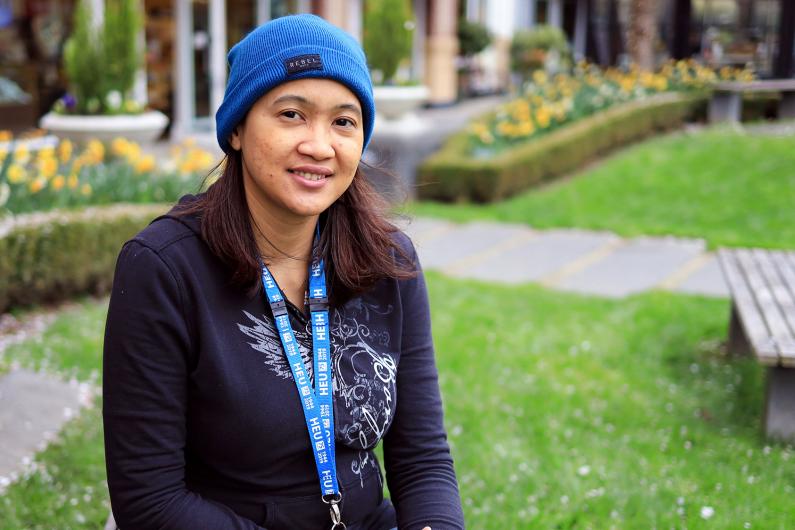
Although many people think of health care being delivered in hospitals and care homes, almost 40,000 health care workers in B.C. work in community settings.
They work in group homes and day centres, addiction services and transition houses, and other locations where they support families, communities and individuals in-need.
The two multi-union bargaining groups that represent these workers – the Community Bargaining Association (representing community health workers) and Community Social Services Bargaining Association (CSSBA) – are at the bargaining table this spring. Workers in these sectors share many of the same concerns about the conditions and future of their work.
Wage levels linked to recruitment woes
Marie Bradley provides cognitive behavioural therapy through the Canadian Mental Health Association in Prince George. She says fair pay is top of mind.
“We want raises that match the increases in the cost of living,” she says.
Bradley is one of about 2,300 HEU members covered by the community health collective agreement, which includes more than 21,000 workers from eight different unions.
During the pandemic, many workers in her sector switched from working in offices to working at home. As a result, Bradley says it’s been hard to feel like part of a team, which doesn’t bode well for attracting new staff and retaining them long-term – another issue her sector faces.
Bradley says a few positions at her workplace were recently posted externally, and there were few to no applicants.
“Is it just a matter of people not wanting to do this type of work anymore?” she asks. “Or is it because they feel it doesn’t pay enough?”
Safety and training key to retaining workers
Olga Torres Andino is a community support worker in Victoria, and part of the community social services (CSS) sector. She says people who work in settings such as hers don’t earn as much as they would in a hospital.
“A lot of people come into this field, but they move on very quickly,” she says. “We don’t have a lot of casuals, the permanent staff are overworked. There’s always overtime offered, and so there’s high burnout.”
And Maria Batocabe, a community support work in Victoria, adds that improvements to sick pay are are priority for her and her colleagues. "The sick pay we get isn't good enough."
About 1,500 HEU members work under the CSS agreement and are among 17,000 unionized workers in jobs like community support, residential support, mental health and counselling.
Torres Andino also wants to see investment in safety training. Community support workers often interact with individuals who have behavioural challenges, raising the risk of physical and psychological injury.
“Sometimes, I feel like there is a lack of training to protect the worker, so when we’re training a brand new hire, and a client’s specific behavioural goals aren’t being met, the new workers sometimes leave, because it’s intimidating.” she says.
“There used to be workshops and extra training,” she says. “I’m not sure if, in the past couple of years, they’ve had a cut in some budget, but the training doesn’t meet our needs. It needs significant improvement for us to feel safe at work.”